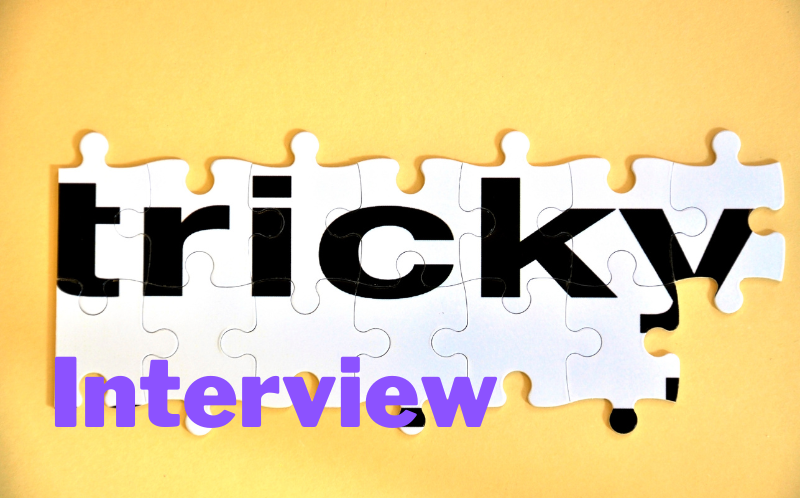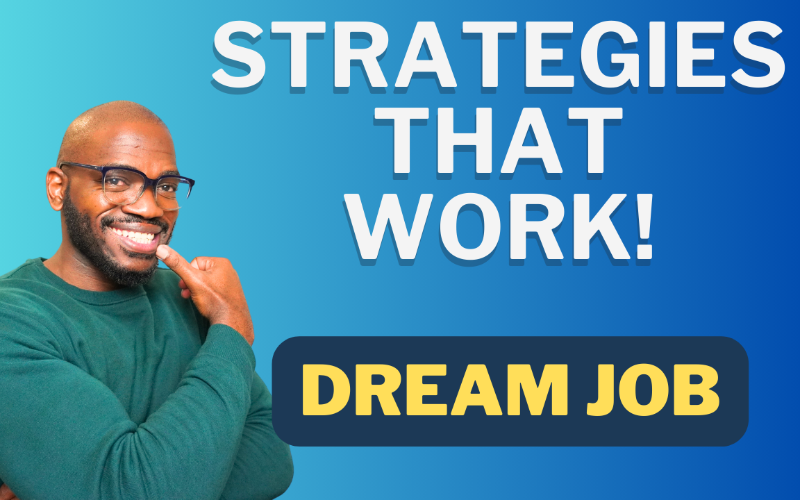Navigating tricky interview situations is a crucial skill that can significantly impact your chances of success in the job market. As the professional landscape evolves, interviewers increasingly employ unconventional methods to assess candidates. This article aims to equip you with the knowledge and strategies to confidently face challenging interview scenarios, fostering success in your career journey.
The Importance of Navigating Tricky Interviews
In today's competitive job market, candidates often encounter interviews that go beyond traditional question-and-answer formats. Tricky interview situations can include unexpected queries, behavioral assessments, and group or panel interviews. Successfully navigating these challenges not only showcases your ability to adapt but also enhances your overall interview performance.
Understanding the Common Challenges
Interviews are dynamic, and challenges can vary. However, some common tricky interview situations include dealing with unconventional questions, behavioral assessments, addressing employment gaps, negotiating salary, facing group or panel interviews, and managing stress and anxiety.
Overcoming Unconventional Questions
Unconventional questions are designed to gauge creativity, problem-solving skills, and how candidates handle unexpected situations. Examples may include "If you were a superhero, what power would you have?" Prepare for these questions by practicing creative thinking and maintaining composure.
Handling Behavioral Interview Challenges
Behavioral questions delve into your past experiences to predict future behavior. Using the STAR method (Situation, Task, Action, Result) can structure your responses effectively. Prepare anecdotes that highlight your skills and demonstrate your ability to handle challenges.
Addressing Employment Gaps and Job Hopping
Candidates with employment gaps or a history of job changes often face scrutiny. Be transparent about these aspects and emphasize the skills and experiences gained during these periods. Showcase your adaptability and the positive outcomes of each career move.
Overcoming Salary Negotiation Hurdles
Salary negotiations can be challenging but are a critical aspect of the interview process. Research industry standards, present a well-justified salary range, and emphasize your value to the organization. Strive for a win-win scenario that aligns with both your expectations and the employer's budget.
Navigating Group or Panel Interviews
Group or panel interviews assess how candidates collaborate and communicate in a team setting. Stand out by actively engaging with all interviewers, maintaining eye contact, and addressing each person when responding. Showcase your teamwork and leadership skills.
Coping with Stress and Anxiety
Interview anxiety is common but manageable. Practice relaxation techniques, such as deep breathing and visualization, to calm your nerves. Prioritize adequate preparation, and remember that a certain level of stress is normal and can enhance performance.
Leveraging Virtual Interview Success
Virtual interviews present unique challenges, including technical issues and the absence of in-person cues. Ensure a professional virtual setup, practice with the technology beforehand, and maintain eye contact through the camera. Virtual interviews require adaptability and effective communication skills.
Successfully navigating tricky interview situations requires a combination of preparation, adaptability, and confidence. By addressing each challenge strategically, you enhance your overall interview performance and increase your chances of securing the desired position. Embrace these tips, practice consistently, and approach interviews with a positive mindset to achieve lasting success in your career.
Preparation for Unconventional Questions

Unconventional questions in interviews are becoming increasingly common as employers seek to assess a candidate's ability to think on their feet, demonstrate creativity, and showcase problem-solving skills. Let's delve into effective strategies for preparing and excelling in the face of unconventional questions.
Understanding the Purpose of Unconventional Questions
Unconventional questions serve a dual purpose in interviews. Firstly, they gauge your ability to handle unexpected situations, which is crucial in dynamic work environments. Secondly, these questions provide insights into your personality, creativity, and thought processes, offering a more holistic view of your suitability for the role.
Strategies for Handling Unconventional Questions
-
Anticipate Unconventional Topics:
-
Familiarize yourself with common unconventional topics, such as hypothetical scenarios, creative challenges, or offbeat questions related to your interests.
-
-
Practice Creative Thinking:
-
Engage in exercises that enhance your creative thinking, such as brainstorming sessions, solving riddles, or participating in activities that challenge your perspective.
-
-
Develop Structured Responses:
-
While unconventional questions may seem open-ended, structure your responses using the STAR method (Situation, Task, Action, Result) to convey your thought process logically.
-
-
Highlight Problem-Solving Skills:
-
Emphasize your problem-solving skills by narrating instances where you successfully tackled challenges or implemented innovative solutions in your past experiences.
-
-
Stay Calm and Composed:
-
Maintain composure when faced with an unconventional question. Take a moment to gather your thoughts before responding, showcasing your ability to handle pressure.
-
-
Connect to Job Requirements:
-
Relate your responses to the skills and qualities relevant to the job. This ensures that even in unconventional scenarios, you demonstrate your alignment with the position.
-
Example Scenario: "If You Were a Superhero..."
Imagine being asked, "If you were a superhero, what power would you have?"
Structured Response:
"In a professional context, I'd choose the power of adaptability. Much like a superhero who can seamlessly adjust to various situations, adaptability is crucial in the dynamic world of [industry]. It enables me to swiftly respond to challenges, learn new skills, and contribute effectively to my team and organization."
By preparing for unconventional questions with these strategies, you not only showcase your ability to handle unexpected scenarios but also highlight your creativity and adaptability, making you a more appealing candidate.
Mastering Behavioral Interview Challenges

Behavioral interviews are designed to assess how candidates handle situations based on their past experiences. Mastering this interview format involves understanding the structure of behavioral questions and strategically crafting responses that highlight your skills and competencies.
The Importance of Behavioral Interviews
Behavioral interviews aim to uncover your behavioral patterns, providing insights into how you approach challenges, work with others, and contribute to a team's success. These interviews are rooted in the belief that past behavior is a strong predictor of future behavior, making them a valuable tool for employers.
Structuring Your Responses Using the STAR Method
The STAR method (Situation, Task, Action, Result) is an effective framework for structuring responses to behavioral questions. This method ensures that your answers are well-organized, comprehensive, and demonstrate the positive outcomes of your actions.
Breaking Down the STAR Method:
-
Situation:
-
Describe the context or situation where the challenge or opportunity arose.
-
Provide enough detail to set the stage for your actions.
-
-
Task:
-
Specify the task or objective you were addressing in the given situation.
-
Clearly articulate what needed to be achieved.
-
-
Action:
-
Detail the actions you took to address the situation and accomplish the task.
-
Focus on your individual contributions and leadership, if applicable.
-
-
Result:
-
Highlight the positive outcomes of your actions.
-
Quantify achievements when possible and emphasize what you learned.
-
Strategies for Answering Behavioral Questions
-
Review the Job Description:
-
Align your responses with the skills and qualities emphasized in the job description.
-
Tailor your examples to showcase your relevance to the specific role.
-
-
Diverse Examples:
-
Prepare a range of examples that demonstrate various skills, such as leadership, problem-solving, teamwork, and communication.
-
-
Quantify Achievements:
-
Whenever possible, quantify the impact of your actions.
-
Use metrics, percentages, or timeframes to provide context to your accomplishments.
-
-
Be Honest and Specific:
-
Provide genuine responses based on real experiences.
-
Avoid generic answers and delve into specific details that showcase your abilities.
-
-
Practice Active Listening:
-
During the interview, listen carefully to the questions and respond thoughtfully.
-
Adapt your responses based on the nuances of each question.
-
Example Behavioral Question: "Describe a Time You Dealt with a Conflicting Team Member."
Structured Response Using STAR:
"In my previous role as a project manager, we faced a challenge where team members had conflicting opinions on project priorities. (Situation) The task was to resolve the conflict and ensure the project stayed on track. (Task) I initiated a team meeting to understand each person's perspective and gather insights. (Action) Through active listening and facilitating open communication, we reached a consensus on project priorities. I assigned roles based on individual strengths and implemented a communication plan to prevent future conflicts. (Result) As a result, the team became more cohesive, and the project was completed successfully, meeting all deadlines."
Mastering behavioral interviews requires a strategic approach that showcases your skills and experiences effectively. Utilize the STAR method to provide structured and compelling responses that leave a positive impression on interviewers.
Here's a comprehensive guide on answering behavioral questions: How to Prepare for Behavioral Job Interviews
Addressing Employment Gaps and Job Hopping

Addressing employment gaps or a history of job hopping during interviews requires a delicate balance between transparency and emphasizing the value you bring to the table. In this section, we'll explore strategies to navigate these challenging aspects of your professional history.
Acknowledging Employment Gaps
Understanding the Perception of Employment Gaps
Employment gaps can arise due to various reasons, such as personal commitments, pursuing further education, or navigating unforeseen challenges. It's crucial to address these gaps with honesty and a positive spin to present yourself as a candidate who uses such periods for personal and professional development.
Strategies for Addressing Employment Gaps
-
Be Honest and Transparent:
-
Acknowledge the employment gap honestly, explaining the circumstances without going into unnecessary detail.
-
Emphasize how you utilized the time for self-improvement, skill development, or any relevant activities.
-
-
Showcase Professional Development:
-
Highlight any courses, certifications, or workshops you pursued during the gap that are relevant to the position.
-
Illustrate your commitment to continuous learning and improvement.
-
-
Freelance and Contract Work:
-
If applicable, mention any freelance or contract work undertaken during the gap.
-
Emphasize the skills and experiences gained through these projects.
-
-
Volunteer and Community Engagement:
-
Showcase any volunteer work or community engagement during the gap.
-
Discuss how these experiences contributed to your personal and professional growth.
-
Example Scenario: Addressing Employment Gap
"During the period between my last two roles, I took a deliberate break to focus on personal development. I utilized this time to enroll in relevant courses, such as [Course Name], where I gained proficiency in [specific skills]. Additionally, I engaged in freelance projects that allowed me to apply and enhance my skills. This intentional break not only refreshed me but also provided me with valuable experiences that I can bring to this role."
Navigating Job Hopping
Understanding the Concerns Around Job Hopping
Job hopping, or frequent changes in employment, may raise concerns about stability and commitment. However, it's essential to communicate the positive aspects of these transitions, such as gaining diverse experiences, acquiring new skills, and contributing to different organizational cultures.
Strategies for Navigating Job Hopping
-
Emphasize Skill Acquisition:
-
Highlight the skills and experiences gained at each job, demonstrating your ability to adapt quickly and contribute effectively.
-
Showcase how each move was a strategic step in your professional development.
-
-
Highlight Achievements:
-
Focus on specific achievements and contributions made at each job.
-
Illustrate how your skills positively impacted the projects or teams you were part of.
-
-
Explain Career Progression:
-
If your job changes were motivated by a desire for career progression, communicate how each move aligned with your long-term goals.
-
Emphasize the growth and development you experienced in each role.
-
Example Scenario: Navigating Job Hopping
"My career journey has involved several job changes, each driven by a desire for growth and new challenges. In my previous roles, I consistently delivered impactful results, such as [specific achievements]. These experiences have shaped me into a versatile professional, capable of adapting swiftly to evolving industry demands. I am confident that the skills and perspectives gained from each role make me a valuable asset to your team."
Addressing employment gaps and job hopping requires a strategic approach that showcases your experiences positively. Be transparent, emphasize your growth, and illustrate how each phase of your career has contributed to your overall skill set.
Overcoming Salary Negotiation Hurdles

Negotiating salary can be a daunting aspect of the interview process, but it's a crucial step in ensuring that your compensation aligns with your skills and the value you bring to the organization. In this section, we'll explore effective strategies for navigating salary negotiations with confidence.
Understanding the Importance of Salary Negotiation
Salary negotiation is an opportunity to establish fair compensation for your skills, experience, and contributions to the organization. Approaching this aspect strategically demonstrates your value, ensures your financial well-being, and sets the stage for a positive employer-employee relationship.
Strategies for Successful Salary Negotiation
-
Conduct Market Research:
-
Research industry standards and salary ranges for your role and level of experience.
-
Use reliable salary surveys, online resources, and networking to gather comprehensive data.
-
-
Define Your Value Proposition:
-
Clearly articulate the value you bring to the organization.
-
Emphasize your skills, achievements, and unique qualities that justify the compensation you are seeking.
-
-
Establish a Realistic Salary Range:
-
Set a realistic and competitive salary range based on your research.
-
Consider factors such as your experience, industry benchmarks, and the organization's financial capacity.
-
-
Consider the Entire Compensation Package:
-
Look beyond the base salary and consider other components, such as benefits, bonuses, stock options, or remote work options.
-
Evaluate the overall package to ensure it aligns with your needs and priorities.
-
-
Timing is Key:
-
Initiate salary discussions at an appropriate time, ideally after receiving a job offer.
-
Express enthusiasm for the role before entering negotiations, ensuring a positive tone.
-
-
Practice Effective Communication:
-
Clearly communicate your salary expectations, emphasizing your research and the rationale behind your range.
-
Use confident and assertive language while maintaining a collaborative tone.
-
-
Be Prepared to Justify Your Expectations:
-
Articulate your achievements, skills, and the impact you anticipate having on the organization.
-
Provide evidence of your market value, showcasing how your compensation aligns with industry standards.
-
Example Scenario: Salary Negotiation
"Based on my research and the skills and experience I bring to the table, I am seeking a salary in the range of [your specified range]. This range is aligned with industry standards for professionals in similar roles. Additionally, considering the unique value I can contribute to the team through [specific skills or achievements], I believe this range reflects a fair and competitive compensation package. I am excited about the opportunity to contribute to [company name], and I am confident that we can reach an agreement that benefits both parties."
Negotiating salary is a skill that improves with practice and strategic planning. By approaching the negotiation process with research, confidence, and effective communication, you can ensure that your compensation aligns with your professional worth.
Here's acomprehensive guide on salary negotiation: How to Negotiate Your Salary Like a Pro: Effective Techniques
Navigating Group or Panel Interviews

Group or panel interviews are a unique format where candidates interact with multiple interviewers simultaneously. This setting is designed to assess teamwork, communication skills, and how candidates handle pressure in a collaborative environment. Here, we'll explore strategies for standing out and effectively managing group or panel interviews.
Understanding the Dynamics of Group or Panel Interviews
The Purpose of Group or Panel Interviews
Group interviews aim to evaluate interpersonal skills, teamwork, and how candidates engage with others in a professional setting. Multiple interviewers may represent different departments, providing a comprehensive assessment of a candidate's suitability for the organization.
Key Traits Assessed in Group Interviews
-
Communication Skills:
-
Ability to articulate thoughts clearly.
-
Active listening and responding thoughtfully to others.
-
-
Teamwork and Collaboration:
-
How well candidates collaborate with others.
-
Contributions to group discussions and problem-solving.
-
-
Leadership Potential:
-
Ability to lead or contribute to discussions effectively.
-
Demonstrated leadership qualities within a team setting.
-
Strategies for Excelling in Group or Panel Interviews
-
Acknowledge Everyone:
-
Maintain eye contact and engage with all interviewers.
-
Address each person when responding to questions.
-
-
Active Listening:
-
Listen attentively to both interviewers and fellow candidates.
-
Demonstrate your ability to absorb information and respond appropriately.
-
-
Balance Speaking Time:
-
Avoid dominating the conversation.
-
Ensure an equitable distribution of speaking time among candidates.
-
-
Be Supportive of Others:
-
Acknowledge and appreciate the contributions of fellow candidates.
-
Encourage a collaborative and positive atmosphere.
-
-
Prepare for Group Activities:
-
Some group interviews may involve collaborative activities.
-
Be prepared to contribute constructively to group exercises.
-
-
Highlight Team Experiences:
-
Share experiences where you successfully collaborated with a team.
-
Emphasize your ability to contribute to collective goals.
-
-
Ask Thoughtful Questions:
-
Prepare questions that demonstrate your interest in the organization.
-
Pose questions that allow interviewers to share insights about their departments.
-
Example Scenario: Group Interview Dynamics
"In my previous role, I was part of a cross-functional team where effective communication and collaboration were paramount. I actively engaged with team members from different departments, ensuring that everyone's perspectives were considered. This experience has equipped me with the ability to contribute meaningfully to group discussions and collaborate seamlessly with individuals from diverse backgrounds. I appreciate the opportunity to interact with multiple team members here and am excited about the prospect of contributing to your organization's collaborative culture."
Navigating group or panel interviews requires a combination of effective communication, collaboration, and the ability to showcase your individual strengths within a team setting. By adopting these strategies, you can leave a positive impression on all interviewers involved.
Coping with Stress and Anxiety

Interviews often come with a level of stress and anxiety, but managing these emotions is crucial for presenting your best self. In this section, we'll explore practical strategies to cope with stress and anxiety, ensuring you can perform at your optimal level during the interview.
Acknowledging and Understanding Interview Stress
Recognizing Normal Interview Stress
Feeling nervous or stressed before an interview is a common reaction. It's essential to differentiate between normal stress, which can enhance performance, and excessive anxiety which may hinder your abilities.
Strategies for Coping with Interview Stress
-
Preparation is Key:
-
Thoroughly research the company, the role, and common interview questions.
-
Practice your responses to build confidence.
-
-
Visualization Techniques:
-
Imagine yourself succeeding in the interview.
-
Visualize a positive interaction with the interviewers.
-
-
Deep Breathing Exercises:
-
Practice deep breathing to calm your nervous system.
-
Inhale slowly, hold for a few seconds and exhale gradually.
-
-
Positive Affirmations:
-
Remind yourself of your achievements and capabilities.
-
Use positive affirmations to boost your confidence.
-
-
Break the Ice:
-
Start the interview with a friendly greeting.
-
Engage in small talk to ease into the conversation.
-
-
Focus on the Message, Not Perfection:
-
Aim for effective communication rather than flawless delivery.
-
Accept that it's okay not to have a perfect answer to every question.
-
Example Scenario: Coping with Pre-Interview Anxiety
"Before every interview, I engage in a routine of deep breathing exercises to calm my nerves. I also remind myself of the thorough preparation I've done for this opportunity. Visualization has been a powerful technique for me – I envision myself confidently answering questions and building rapport with the interviewers. Additionally, I acknowledge that a certain level of stress is normal and can enhance my performance. By focusing on the message I want to convey rather than aiming for perfection, I can navigate the interview with confidence and authenticity."
Leveraging Virtual Interview Success

Recognizing the Nuances of Virtual Interviews
Virtual interviews come with their unique challenges, including technical considerations and the absence of in-person cues. Successfully navigating these challenges requires adaptability and effective communication skills.
Strategies for Excelling in Virtual Interviews
-
Technical Preparation:
-
Familiarize yourself with the virtual platform.
-
Test your camera, microphone, and internet connection in advance.
-
-
Professional Appearance:
-
Dress professionally as you would for an in-person interview.
-
Ensure a clutter-free and well-lit background.
-
-
Maintain Eye Contact Through the Camera:
-
Look directly into the camera to create a sense of eye contact.
-
Avoid constantly checking your own video feed.
-
-
Minimize Distractions:
-
Choose a quiet and distraction-free environment.
-
Inform household members or roommates about the interview timing.
-
-
Engage Actively:
-
Demonstrate active engagement through nodding and facial expressions.
-
Use gestures to emphasize points during the conversation.
-
-
Follow-Up with Gratitude:
-
Send a thank-you email after the virtual interview.
-
Express gratitude for the opportunity and reiterate your enthusiasm for the role.
-
Example Scenario: Virtual Interview Success
"For virtual interviews, I prioritize technical preparation to ensure a seamless interaction. I test my equipment, position my camera for optimal visibility, and choose a professional background. Maintaining eye contact through the camera is crucial, and I actively engage with the interviewers by nodding and using appropriate gestures. I also follow up with a thank-you email, expressing my appreciation for the virtual interview experience and reiterating my enthusiasm for the position."
Navigating stress and anxiety, whether in traditional or virtual interviews, involves a combination of psychological techniques, effective communication strategies, and embracing the uniqueness of each interview format.
Here's a comprehensive guide for navigating virtual interviews: The Ultimate Guide to Virtual Interviews: Succeeding in the Digital Era
Conclusion
Navigating interviews successfully requires a multifaceted approach, encompassing not only the technical aspects of answering questions but also the nuanced elements of effective communication, adaptability, and self-presentation. In this comprehensive guide, we've covered various scenarios and provided strategies to help you ace different aspects of the interview process.
To recap, here are key takeaways:
-
Interview Preparation:
-
Conduct thorough research on the company, role, and common interview questions.
-
Practice your responses to build confidence and fluency.
-
-
Handling Unconventional Questions:
-
Anticipate unconventional topics and practice creative thinking.
-
Structure responses using the STAR method for clarity.
-
-
Mastering Behavioral Interviews:
-
Understand the STAR method for structuring responses.
-
Align answers with the job description and emphasize achievements.
-
-
Addressing Employment Gaps and Job Hopping:
-
Be honest and transparent about employment gaps.
-
Highlight professional development and relevant experiences.
-
-
Overcoming Salary Negotiation Hurdles:
-
Conduct market research for realistic salary expectations.
-
Emphasize your value proposition and overall compensation package.
-
-
Navigating Group or Panel Interviews:
-
Acknowledge and engage with all interviewers.
-
Showcase teamwork, effective communication, and leadership skills.
-
-
Coping with Stress and Anxiety:
-
Practice visualization, deep breathing, and positive affirmations.
-
Focus on the message rather than aiming for perfection.
-
-
Leveraging Virtual Interview Success:
-
Technical preparation is key for virtual interviews.
-
Maintain professionalism, eye contact, and active engagement.
-
By incorporating these strategies into your interview preparation, you'll be well-equipped to navigate the diverse challenges that may arise. Remember, each interview is an opportunity to showcase your unique skills and experiences, and the more you refine your approach, the more confident and successful you'll become.
Best of luck in your future interviews, and may you unlock new opportunities and achievements on your professional journey!
If you have any further questions or need additional guidance, feel free to reach out.









